Project and workshops planning - Getting real on every detail
César Vázquez Gonzáles, Ricardo Merlos Riestra · | Environmental Report Cards | 1 commentsCésar Vázquez Gonzáles and Ricardo Merlos Riestra
During last week's class we saw two paramount videos for the course, and both were poured with several information. On the first lecture, Dr. Heath Kelsey talked shortly about how to make the five steps of the report card (RC) happen. It’s important to remember that planning goes beyond just the activities considered, so scoping the project, staffing and setting a timeline are some of these things. A timeline is a key element for project planning so we did one for our homework and those were reviewed on the second part of the class. This exercise helped us to know how realistic we were with our RC project. Usually, we think that we will achieve our plans early, however, according to Heath’s experience, he knows that this doesn’t occur frequently, so it’s always better to allot more time (about 50% more).
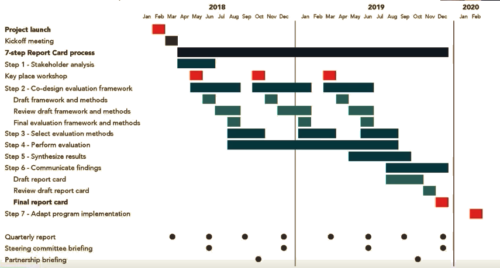
On the second lecture, Dr. Heath Kelsey talked about many details to consider long before the stakeholder workshops. Workshops (specially the first one) are the right moments to meet and connect stakeholders, create a high level buy-in for the project and of course, establish a positive collaborative atmosphere. Another relevant details that need to be figured out beforehand are the workshop agenda and the workshop logistics (such as the location of the meeting, condition of the room etc.), therefore, creating a “pre-workshop” timeline will be very useful. During the workshops, some guiding principles we look for are trust and openness, representation of professional and personal interests, transparency and common language. It’s better to have an interactive, fun, and dynamic workshop, because this will bring far better results and more accomplishments. In fact, many highlights or interesting revelations happen in a more social setting, so we want to incorporate social activities too.
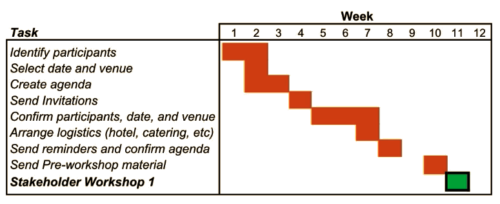
During class we reviewed some questions first, which include: how long the project will be? how many things will we need to achieve it? How to handle a situation where government stakeholders refuses to accept the overall grade? Which are the main expenses during RC process? How big the technical committee should be? and others.
According to Heath, it is important to socialize the project among local stakeholders, so choosing a right local leader will provide better communication and credibility during the making of RC. For example, César included local leaders and authorities as facilitators and communicators in his project and they are also considered in his organization chart.
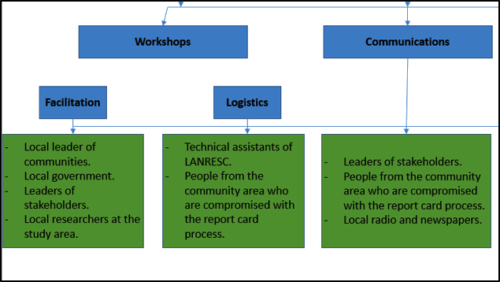
Preparing and enjoying workshops
Dr. Dennison also explained how to run productive workshops. First, it requires leadership skills as presented in Aristotle’s rhetorical triangle. Bill emphasized that credibility, logic, and emotion are needed to build a project with dynamism, rationale, and support. He also shared the blog of his student, Suzanne Spitzer, from her attendance in a conference on studying Team Science and highlighted two things - how to build team science for working together with local communities, and how to identify healthy debates.
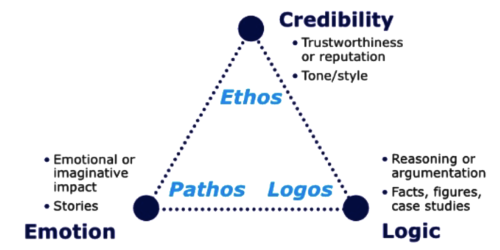
During the workshop, it is important that everybody knows their role early on so that we can be more confident that we have an efficient team and in turn make sure the workshops and follow-ups run smoothly. During the workshop, there should be a time keeper, leader, facilitator, recorder and, of course, the participants. Having amhealthy debate are good when intensity, passion and directness are in their right measure, so in order to avoid tension or conflicts among participants, recognizing this is fundamental. The figure below shows the possibility of being in different cases overall when changing the amount of intensity or directness, we want to achieve a peaceful and rich debate.
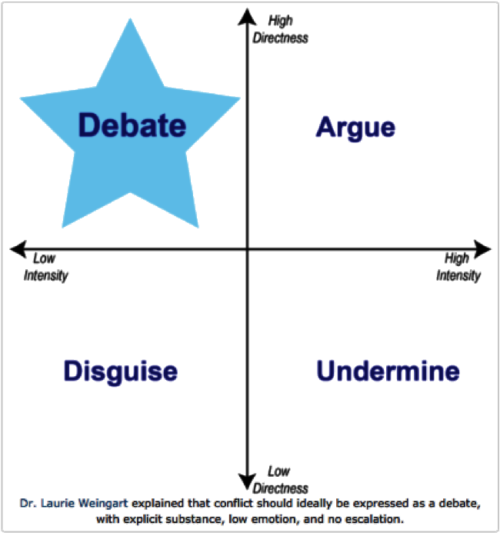
Workshops star team
A short section for facilitators is needed because they are key people for RC and have a lot of issues to deal with during the whole process. As part of their duties, they are in charge of making easier conversations and develop consensus among participants, they bring guidance or supervision, encourage full participation, promote shared understanding, and cultivates shared responsibility. In Kaner definition, a facilitator’s job is to support everyone to do their best thinking and practice. By supporting everyone to do their best thinking, a facilitator enables group members to search for inclusive solutions and build sustainable agreements.
A good facilitator has a lot of different roles and clearly, being a facilitator is not an easy job because it requires sensibility and takes a lot of energy, however their presence is critical. They jump from one role to another as a motivator, guide, questioner, bridge builder, clairvoyant, peacemaker, taskmaster or praiser.
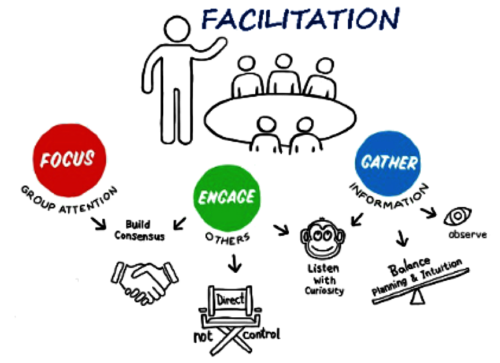
Another member of our team is the rapporteur who will help us to bring back and recreate important moments for the group, they need to capture essential information and save important thoughts. Participants also have some previous ground rules like self-awareness, clear communication, effective listening, build commitment at all levels, and recognize that this is an opportunity to learn or being in learning mode. A couple of ways to maintain attendance is to start and end on time, this will be a clear message that our time is valuable.
Don't forget to have fun!
In closing, it is very important to make sure that workshops are short, fun, and productive, and could be part of the workshop performance indicators. Structure is valuable but with some flexibility, this means to adjust when necessary. Always remember that workshops are great opportunity to get collective thinking, build consensus, and get productive results. Considerable time and money are already expended so we must make the most of it. Also make sure to frequently follow-up with participants and drive a collaborative process to connect with people that will help us later on. As Bill mentioned, people are not going to come back if they have a terrible time, so our goals are to have productive, interactive, condensed, participatory, and fun workshops!
See you next class!
Next Post > Association for Science of Limnology and Oceanography in San Juan, Puerto Rico
Comments
-
Namafe Namafe 7 years ago
This is a well written blog to those that compiled it. I would like to strongly agree with what Dr. Dennison mentioned in the previous class. I think that the success of any report card process highly depends on how the facilitation is being done. I have really liked Caesar's ideas of incorporating local leaders in the facilitation process, and because of this, they can help interpret in the local native language and can help devise strategies of how to ensure ownership in the local communities in the report card process.
My regards
Namafe